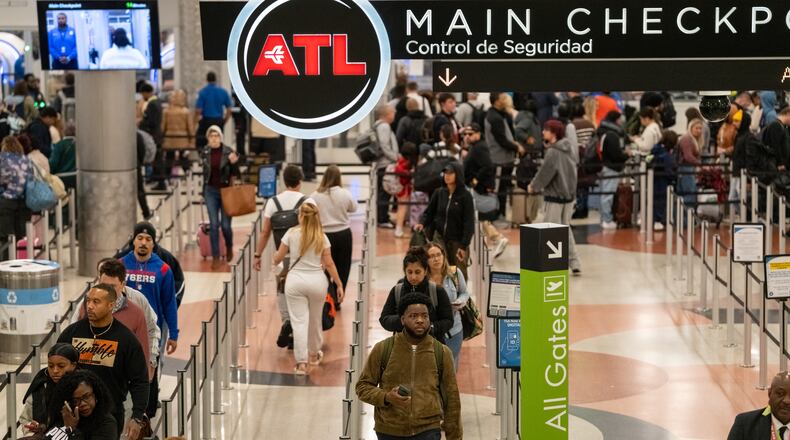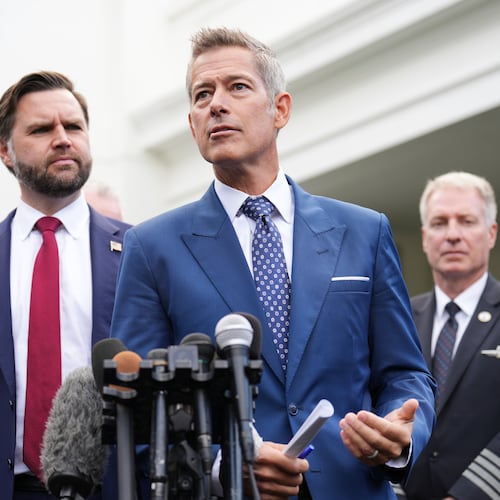American transportation regulators will cut flights by 10% across 40 of the nation’s busiest airports if the government shutdown continues.
The list includes Atlanta’s Hartsfield-Jackson Atlanta International Airport, according to a report by ABC News. The network also reported a person with knowledge of the situation told ABC that the flight reductions will start at 4% on Friday and work up to 10%.
The move is to alleviate pressure on air traffic controllers who have been working without pay for weeks.
Hartsfield-Jackson Atlanta International is the busiest airport in the country and the world. As a major hub, it is likely to see a ripple effect from other flight cuts across the country.
In a statement, Atlanta-based Delta Air Lines said it would comply with the cuts but “expects to operate the vast majority of our flights as scheduled, including all long-haul international service.”
The airline, which represents the majority of Hartsfield-Jackson’s schedule, said it would allow all customers flexibility to change, cancel or refund their flights without penalty during this time — including for basic economy fares.
Frontier Airlines, the second-largest airline in Atlanta, said it also expects “most” flights to operate on schedule. It’s offering flexibility to change or cancel flights to all travelers at this time.
Southwest Airlines, the No. 3 carrier in Atlanta, said it would notify customers of affected as soon as possible and rebook them automatically on most cases and offer refunds if the rebooked itinerary doesn’t work.
United Airlines CEO Scott Kirby said the carrier’s international long-haul and hub-to-hub flights will not be impacted, and confirmed all customers are eligible for refunds during this time period.
The carrier will focus its cuts on “regional flying and domestic mainline flights” not between hubs to “maintain the integrity of our network,” he said.
American Airlines said it expects the “vast majority of our customers’ travel will be unaffected” and said it would reach out to those who are impacted.
Some controllers have been forced to take side jobs, Transportation Secretary Sean Duffy said Wednesday, which has created “staffing pressure in our airspace.”
That has prompted delays and cancellations, he said. And “there’s additional pressure that’s building in the system.”
To make sure the airspace remains safe, FAA Administrator Bryan Bedford said the agency will reduce flight capacity by 10% at 40 airports, amounting to nearly 4,000 flights.
For the most part, he said, the airspace is running as efficiently as it does normally. “But as we dig deeper, what we find is issues of fatigue that our flight controllers are experiencing,” he said.
That data, based on safety reports from commercial pilots, has allowed them to zero in on specific markets with issues, Bedford said.
If the situation continues unchecked, he said, it could have safety consequences for air travel. “We do recognize that the controllers have been working fastidiously for the last five weeks with this huge burden over their head of lack of compensation,” he said.
“We are starting to see some evidence that that fatigue is building in the system,” Bedford said.
“The data is telling us that we need to do more, and we are going to do more.”
Delta deferred comment to federal authorities.
About the Author
Keep Reading
The Latest
Featured



